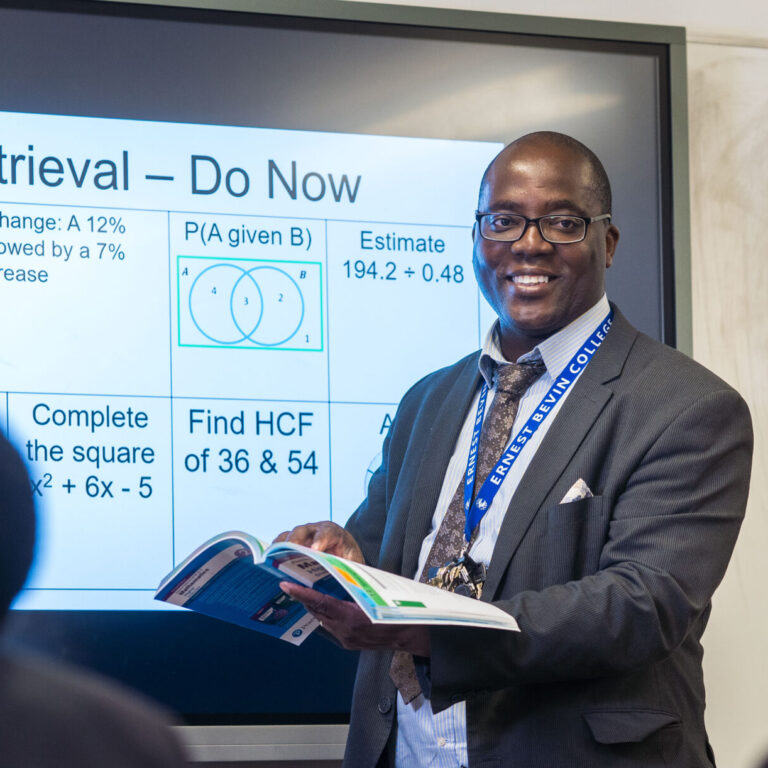Mathematics is critical in helping us all to understand and change the world. It plays a vital role in many aspects of our everyday life. The subject of Mathematics provides us with a broad range of skills for problem solving, logical reasoning and flexible thinking.
At Ernest Bevin Academy, we have redesigned our Key Stage 3 schemes of learning to reflect the new National Curriculum for Mathematics. Our KS3 students complete a 2-year programme of study for KS3 and then proceed to go onto a 3-year GCSE programme. Our schemes of learning are intended to develop the skills set out in the National Curriculum as well as to nurture a sense of curiosity and confidence about mathematics.
We offer two optional additional GCSE qualifications at KS4 – GCSE Statistics and the OCR FSMQ in additional maths.
Ernest Bevin Academy subscribes to Sparx to improve learning outcomes.


